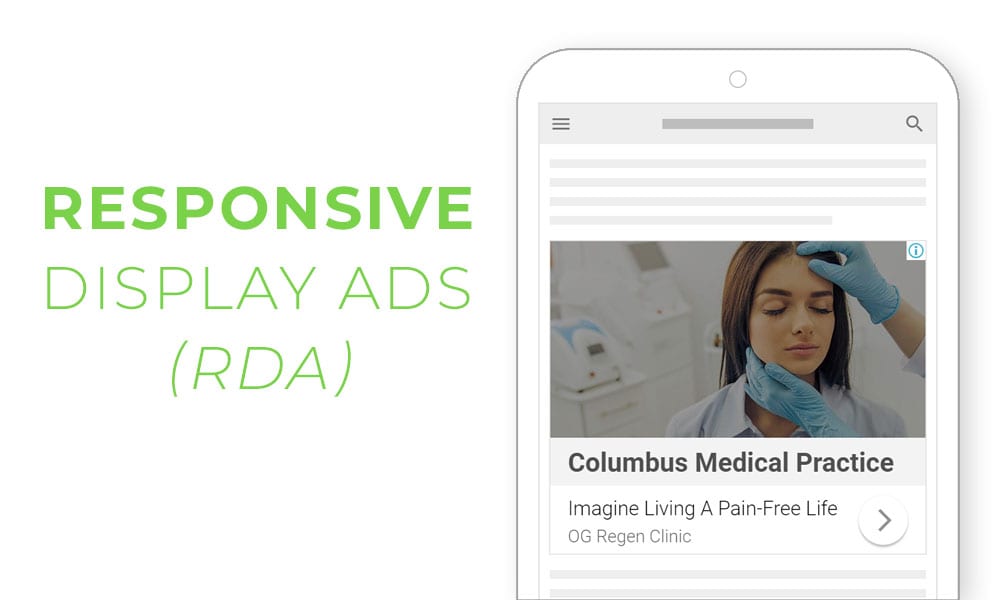New responsive banner display ads for medical practices.
Per Google, “Responsive display ads (RDA) combine your creativity with the power of Google’s machine learning to deliver relevant, valuable ads across the web, at scale.“
So, what does this change actually mean for the medical practice that is currently running, or wants to run, Google display ads? Well, for one, your display ads will probably look much better than they previously did. Unless your advertising partner designs and manages your banner ads for you today – which we do (learn more here) – you have most likely been stuck using Google’s previous display ad generator. The new display ad creator now lets medical practices upload up to 15 images, 5 headlines, 5 descriptions, and 5 logos. Google then leverages these assets along with their machine learning to test different banner ad combinations and evaluates which ads perform best.
We will mention, when it comes to Google’s machine learning capabilities, we highly recommend manually developing your ads and NOT automating performance optimization. While Google’s responsive display ads are much improved, they still pale in comparison to nicely designed ads from a marketing partner. Same for the machine learning developed by Google. It will help medical practices quickly test many different variants, but there is not much strategy behind the tests generated by Google’s platform.
That said, for the practice lacking a marketing partner, or an in-house marketing person, Google’s responsive display ads are a great option for increase awareness online and expanding reach across millions of sites.
Disclaimer: In our experience, some medical segments may be prohibited from running display advertising across several different online ad platforms. Others may be able to run advertising, but may not be able to leverage customer match or like-audiences.
For more information, view the release at Google Ads.

